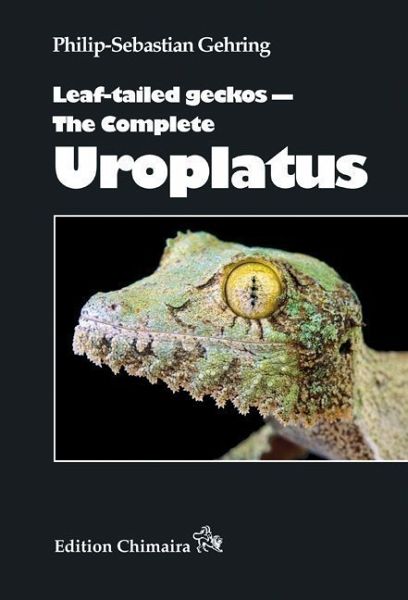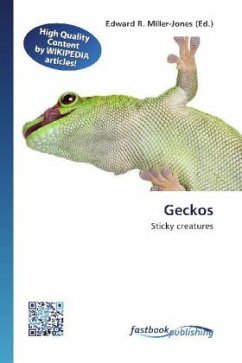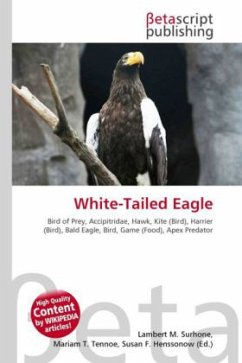Nicht lieferbar

Leaf-tailed geckos
The Complete Uroplatus
Übersetzung: Ettmar, Stephan
Versandkostenfrei!
Nicht lieferbar
With the present volume, Philip-Sebastian Gehring has authored a veritable Uroplatus-Bible. This informative book provides a history of the study of Uroplatus, as well as extensive consideration of the diverse habitats of Madagascar, and the evolution and biogeography of leaf-tailed geckos. I was first attracted to the genus on the basis of its extraordinary morphology; almost every part of the body is distinctive in Uroplatus, from the camouflaged skin to the huge and distinctive eyes, and from the fan-like adhesive toepads to the tails that give the group its name. These and many more featur...
With the present volume, Philip-Sebastian Gehring has authored a veritable Uroplatus-Bible. This informative book provides a history of the study of Uroplatus, as well as extensive consideration of the diverse habitats of Madagascar, and the evolution and biogeography of leaf-tailed geckos. I was first attracted to the genus on the basis of its extraordinary morphology; almost every part of the body is distinctive in Uroplatus, from the camouflaged skin to the huge and distinctive eyes, and from the fan-like adhesive toepads to the tails that give the group its name. These and many more features are explored in the pages of this volume. Nor is ecology neglected. A broad suite of predators is identified and illustrated and diet, life history, and reproduction in the field are considered.In light of captive care, detailed sections are provided on housing, feeding, behavior, reproduction, and health and veterinary issues, as well as the documentation needed to show that animals are being legally kept (critical because they are CITES listed and subject to annual export quotas from Madagascar). Indeed, one cannot discuss Uroplatus without raising the issues of conservation, habitat destruction and animal trafficking, all of which have a place in this book. The species accounts form the heart of the book and they include all of the things that make the difference between an average book and an exceptional one. In addition to accurate point locality maps, spectacular portraits and images of stunning intraspecific variation and, of course, the latest information from the scientific and herpetocultural literature, details like the etymology of scientific names and the illustration of hemipeneal morphology offer something for every reader. Gehring presents not only comprehensive information from both field and captive perspectives on all 19 recognized species in the genus, but also data for another ten undescribed species. And who better to do so? The volumes unique section on how a new species is described, is based on his own experiences as part of a research team that has described many new Malagasy reptiles. This intimate familiarity with his study organisms permeates the entire book and provides all of the context needed to understand what is certainly the most bizarre, and arguably the most interesting, of all gekkotan lizards.









